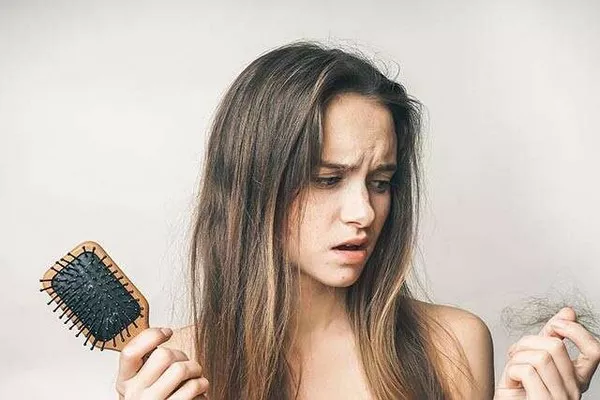Alopecia areata is a hair loss condition that affects millions of people worldwide. While there is no known cure, there are proactive steps you can take to prevent its further progression. In this article, we will delve into effective strategies to stop alopecia areata from spreading, helping you regain control over your hair and boost your confidence.
I. Understanding Alopecia Areata
Unraveling the Hair Loss Mystery
Alopecia areata is an autoimmune disorder that causes hair follicles to mistakenly be attacked by the immune system. This results in sudden, unpredictable hair loss, often leading to patchy or complete baldness. By understanding the underlying mechanisms of alopecia areata, we can better tackle its spread and mitigate its impact.
II. Early Detection and Professional Diagnosis
Spotting the Signs, Seeking Expertise
Recognizing the early signs of alopecia areata is crucial to prompt action. Keep an eye out for circular bald patches or sudden hair loss on the scalp, eyebrows, or other parts of the body. If you notice any symptoms, it is essential to consult a dermatologist or a hair specialist for an accurate diagnosis and personalized treatment plan.
III. Stress Management
Unleashing the Power of Inner Harmony
Stress is often associated with alopecia areata flare-ups, as it can trigger or exacerbate the condition. Practicing stress management techniques such as meditation, yoga, or engaging in hobbies that promote relaxation can be immensely beneficial in curbing its spread. Additionally, seeking support from loved ones or joining support groups can provide emotional strength during challenging times.
IV. A Nutrient-Rich Diet
Fueling Your Follicles with Goodness
Ensuring your body receives a balanced diet rich in essential nutrients can promote healthy hair growth and prevent alopecia areata from worsening. Include foods like leafy greens, lean proteins, whole grains, and omega-3 fatty acids in your diet. Additionally, consider incorporating supplements like biotin, zinc, and vitamin D after consulting with your healthcare provider.
V. Topical Treatments
Nourishing Scalp and Stimulating Growth
Topical treatments can help curb the spread of alopecia areata by providing essential nourishment to the scalp and stimulating hair growth. Minoxidil, a popular over-the-counter topical solution, can be effective in promoting hair regrowth. Additionally, corticosteroid creams or injections prescribed by your dermatologist can help reduce inflammation and encourage hair follicle recovery.
VI. Immune System Support
Boosting Your Body’s Defenses
Since alopecia areata is an autoimmune disorder, strengthening your immune system can aid in halting its spread. Incorporate immune-boosting practices into your routine, such as regular exercise, adequate sleep, and a healthy lifestyle. Avoid smoking and excessive alcohol consumption, as they can compromise your immune system and aggravate the condition.
VII. Low-Level Laser Therapy
Harnessing the Power of Light
Low-level laser therapy (LLLT) has gained popularity in recent years for its potential to stimulate hair growth. This non-invasive treatment involves exposing the scalp to low-intensity lasers, which may promote blood circulation and activate hair follicles. Consult with a professional to explore LLLT as an option to prevent further hair loss.
VIII. Wigs and Hairpieces
Embracing Your Style with Confidence
While treating alopecia areata, it’s essential to maintain your self-esteem and confidence. Wigs, hairpieces, or scarves can help you express your unique style while allowing your scalp to recover. Opt for high-quality, breathable materials that provide comfort and a natural appearance, ensuring you feel confident and at ease in your daily life.
IX. Emotional Support and Counseling
Healing from Within
Dealing with hair loss can be emotionally challenging. Seeking support from a therapist or counselor who specializes in alopecia areata can help you navigate the emotional rollercoaster that accompanies the condition. They can provide coping strategies, help build resilience, and offer guidance on embracing your changing appearance.
X. Protecting and Caring for Your Scalp
Gentle Care for Optimal Results
Taking proper care of your scalp is essential to prevent further damage and promote healthy hair growth. Avoid harsh chemical treatments, excessive heat styling, and tight hairstyles that can put stress on the hair follicles. Opt for gentle, sulfate-free shampoos and conditioners, and consider incorporating scalp massages to improve blood circulation and stimulate hair follicles.
XI. Alternative Therapies
Exploring Nature’s Potential
Some individuals have found alternative therapies to be helpful in managing alopecia areata. These include acupuncture, herbal remedies, and essential oil treatments. While the effectiveness of these therapies may vary from person to person, it is crucial to consult with a qualified professional before incorporating them into your routine.
XII. Clinical Trials and Experimental Treatments
Pioneering the Path to Progress
Participating in clinical trials and exploring experimental treatments can be an option for those seeking innovative solutions to stop alopecia areata from spreading. Stay informed about ongoing research, consult with experts, and discuss the potential risks and benefits of experimental treatments to make an informed decision.
Conclusion:
While alopecia areata poses challenges, there are numerous strategies you can employ to prevent its spread and regain control over your hair. By combining early detection, stress management, a nutrient-rich diet, topical treatments, immune system support, and alternative therapies, you can take proactive steps towards managing and potentially reversing the effects of alopecia areata. Remember, you are not alone in this journey. Seek support from professionals, friends, and support groups to navigate the emotional and physical aspects of the condition. With determination and a comprehensive approach, you can defy alopecia areata and embrace a life of confidence and self-assurance.

